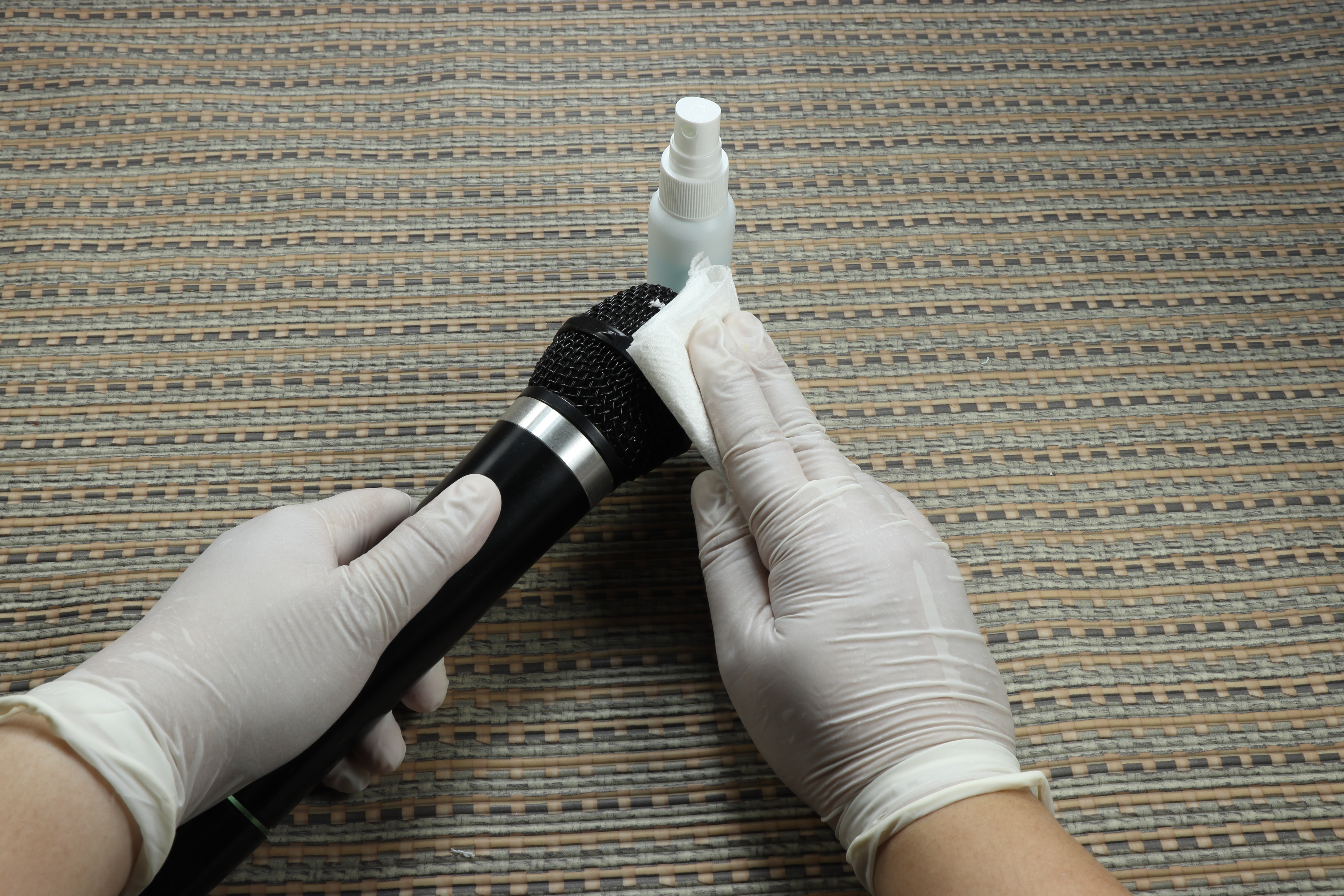 Sharing is usually seen as a virtuous act, but this isn’t the case when it comes to a pastor’s microphone. It may not seem like a problem that a dozen people share one microphone at your church. You probably use the house mic at conferences and when you’re on the road without thinking twice about it. But you may be putting your health and the health of others at risk by sharing a mic.
Sharing is usually seen as a virtuous act, but this isn’t the case when it comes to a pastor’s microphone. It may not seem like a problem that a dozen people share one microphone at your church. You probably use the house mic at conferences and when you’re on the road without thinking twice about it. But you may be putting your health and the health of others at risk by sharing a mic.
Sharing Mics Can Spread Disease
During cold and flu season you probably take precautions to stay healthy and to make sure you don’t sicken others if you come down with a cold. You use hand sanitizer, sneeze into your elbow, and keep shared surfaces clean. So why do you keep sharing microphones?
Microphones get contaminated with cold and flu germs in a number of ways. First, keep in mind how close the mic is to your mouth. As you speak or sing you are getting your saliva all over the mic. Sometimes you might even cough or sneeze on it. If it’s a handheld microphone, you also have the opportunity to slather the barrel of the mic with germs from your hands. Pop and wind filters are especially good at harboring germs because they can remain moist for a long time. Many mics also have integrated windscreens that can’t be easily changed or cleaned.
So when you pick up that shared microphone, you’re also potentially picking up the cold or flu bug that another unwitting pastor is just getting over. You touch it to your mouth, grab it with your hands—they may as well just sneezed in your face! On top of that, cold and flu viruses can live on surfaces like microphones for 48 hours or more, according to the Mayo Clinic.
Microphones Difficult to Disinfect
Unfortunately, most microphones can’t be effectively disinfected. They have many inaccessible places where germs can hide and bacteria can breed, which you can’t clean without damaging the mic. Though you can take some precautions that may help reduce the risk of spreading wintertime maladies around.
Here are some tips for handling microphones. Be aware that some mics are waterproof, and these practices may not apply to all mics, so do check with each manufacturer for care and handling.
- Change pop/wind filters between uses
- Wipe down mic booms and cables with disinfectant cloths
- Give them a 2 to 3 minute sonic bath (waterproof mics only)
- Use your own microphone, and use X-Connectors to swap out for different wireless packs if you move from venue to venue
Windscreens are available in a variety of sizes and shapes and should be changed often to keep your microphone element free of bacteria.
A Personal Pastor Mic is the Best Protection
At first, it might feel a bit like rock star gluttony to carry your own mic with you everywhere you speak, but it’s the most effective way to prevent spreading germs to others. You don’t usually share your headphones, (though sharing a mic is more like sharing a toothbrush) right? It should feel no different having your own mic. And you don’t have to glam your mic up with glitter and rhinestones, but don’t let me stop you from personalizing it! Just be sure to avoid paint and adhesives that may damage your microphone’s sensitive electronics.
In the end, when you consider how much it costs you and your congregation when you’re out sick, getting your own mic literally pays for itself.
ARTICLE COURTESY OF POINT SOURCE AUDIO
www.point-sourceaudio.com





